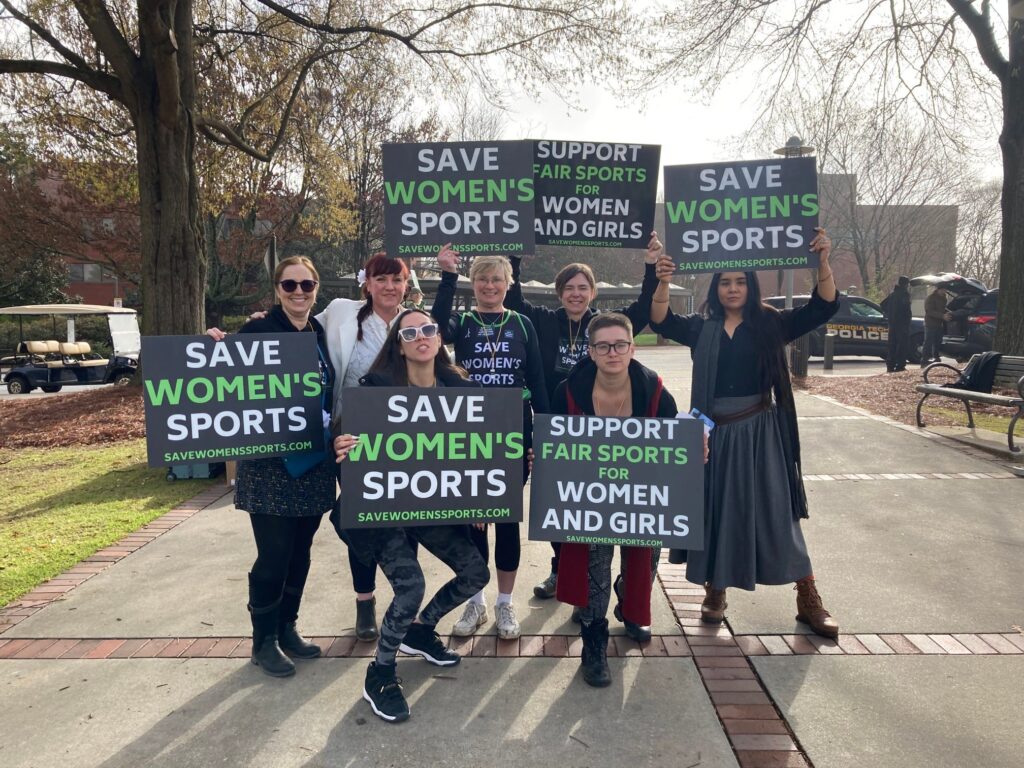Integrity of women’s sports, protection of minors may be tied in compromise
(The Center Square) – A compromise between chambers of the North Carolina General Assembly on legislation to preserve the integrity of women’s sports may spawn other efforts to protect…

(The Center Square) – A compromise between chambers of the North Carolina General Assembly on legislation to preserve the integrity of women’s sports may spawn other efforts to protect minors.
The first sign of legislative compromise between competing versions of the Fairness in Women’s Sports Act came last week, when the Senate Education Committee approved an amended House version of the legislation to prohibit biological male students from competing on women’s teams.
House Bill 574, pending in the upper chamber’s rules committee, typically the last stop before final approval, includes college sports that were not part of the Senate version, Senate Bill 631. Both bills cleared their respective chambers by wide margins, with three House Democrats joining the majority.
With HB574 on an apparent glide slope for full approval, SB631 is now slated to transform into a new bill aimed at a related issue, providing a second clue that HB574 is a done deal.
The House Health Committee on Tuesday is scheduled to consider a committee substitute for SB631 titled “Minor Gender Trans. Proc./Public Providers,” though details on what it entails are not yet available.
The title suggests the legislation could target gender transition procedures for minors, similar to House Bill 808 that cleared the lower chamber with a vote of 74-44 on the eve of the May crossover deadline.
House Bill 808, assigned to the Senate Health Care Committee last week, would block the use of state funds for certain gender transition treatments for minors. The bill’s Republican sponsors spoke in committees and the House floor about concerns with the experimental nature of the treatments, such as the use of puberty blockers. They likened the practice to the government-backed Tuskegee medical experiments in the 1930s, and the forced sterilization of North Carolina’s poor women in the 1960s; Democrats rebuked the comparisons.
Senate Bill 639, which mirrors HB808, has not moved since it was introduced in April. Bills that do not involve appropriations or revenue or are not part of a legislative study must pass either the House or the Senate by the crossover deadline to remain viable for the remainder of the long session or the 2024 short session.
Lawmakers, however, can get around the requirement by importing a committee substitute into legislation that made the cut.
Online, in committee hearings, and through organized protests, transgender activists have lashed out at the Fairness in Women’s Sports Act, HB808 and other legislation they describe as a “slate of hate.”
Equality NC and the Campaign for Southern Equality describe HB808 as “extreme overreach,” arguing it ignores medical science and erodes transgender rights.
“North Carolina’s leading medical experts are demanding that lawmakers listen to their concerns, and accepted medical best practices, before rushing through this dangerous anti-LGBTQ+ agenda,” Allison Scott, Campaign for Southern Equality’s director of impact and innovation, said in a statement following House approval of HB808.



